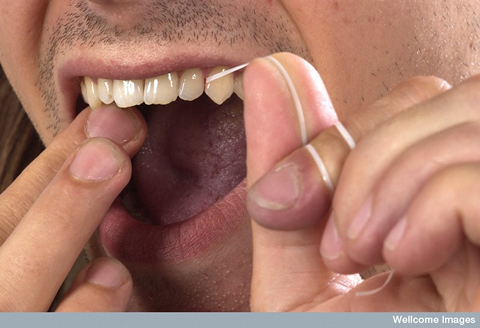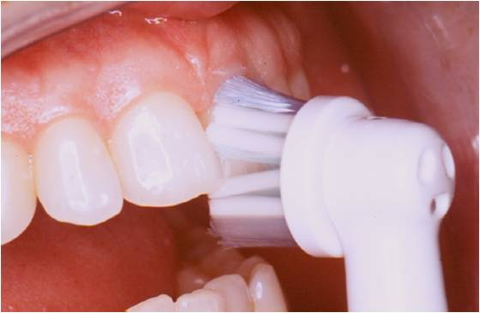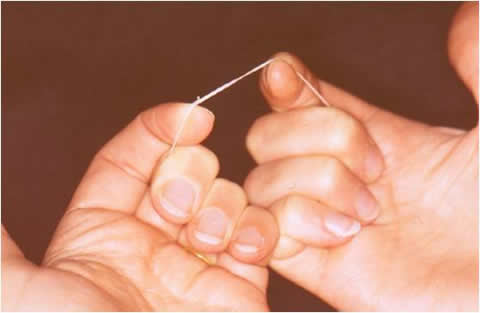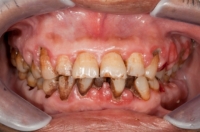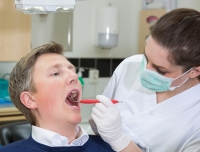Treatment Adherence course for Dental Practice


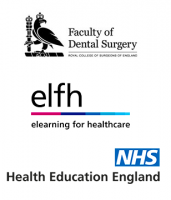
This session introduces ways to help patients improve their adherence to periodontal care.
Learning Objectives
By the end of this session you will be able to:
- List the reasons why patients may not adhere to treatment for periodontal diseases and conditions
- Identify recall strategies which can be used by patients to improve their adherence to treatment for periodontal diseases and conditions
Poor adherence to treatment is well recognised, and significantly contributes to treatment failures in medical and dental interventions.
Approximately 50% of patients do not take prescribed treatments as recommended and, across the various recommendations made by clinicians, between 15% and 93% of patients do not act on recommendations.
Before commencing this session you should complete:
- The e-Den session in Module 4 Periodontal Disease and Management/Patient Education and Self-Performed Plaque Control/The Critical Role of Self Care (141-0179)
Phil qualified from King’s London in 1978. He joined the RAF after qualifying and was a general dental practitioner until taking an MSc in Periodontology in 1992, after which he was RAF Adviser in Periodontology and ran the RAF School of Dental Hygiene. After leaving the RAF he lectured at the Eastman Dental Institute and worked in several specialist practices. For 10 years he worked alongside Bernie Kieser at the Periodontal Practice in London and now practices at the Briars Dental Centre in Newbury. He is on the GDC’s Specialist Register. He has been an examiner for the Royal College of Surgeons of England (MGDS) and has served two terms on the Council of the British Society of Periodontology. Phil has had papers published in the Journal of Clinical Periodontology, Dental Update, Dental Practice and Independent Dentistry and is on the editorial boards of Dental Health and Primary Dental Care. He lectures throughout the UK, and is responsible for the perio component of the FGDP(UK) Diploma in Restorative Dentistry in both London and Manchester.
Phil is also the e-Den Module Editor for Module 4 Periodontal Disease and Management.

- Medical and Pharmacology | Human diseases and medi...
- Posted By eIntegrity Healthcare e-Learning
- Posted Date: 2024-11-05
- Location:Online
- This session looks at the relevance of common dermatological disorders to the delivery of dental care by the dental practitioner.
- Medical and Pharmacology | Human diseases and medi...
- Posted By eIntegrity Healthcare e-Learning
- Posted Date: 2024-11-05
- Location:Online
- This session describes the signs and symptoms that may manifest in patients diagnosed with cancers and looks at the impact of important cancers on the provision of dental care.
- Medical and Pharmacology | Human diseases and medi...
- Posted By eIntegrity Healthcare e-Learning
- Posted Date: 2024-11-05
- Location:Online
- As a dentist, you will need to be able to treat pregnant patients confidently. As their dental care professional, it is important to be up to date with current thinking and guidance.
- Medical and Pharmacology | Human diseases and medi...
- Posted By eIntegrity Healthcare e-Learning
- Posted Date: 2024-11-05
- Location:Online
- This session provides an overview of some of the clinically important cardiac challenges you may come across as a dental practitioner.
- Medical and Pharmacology | Human diseases and medi...
- Posted By eIntegrity Healthcare e-Learning
- Posted Date: 2024-11-05
- Location:Online
- This session provides an overview of some of the clinically important cardiac arrhythmias you may come across as a dental practitioner.

